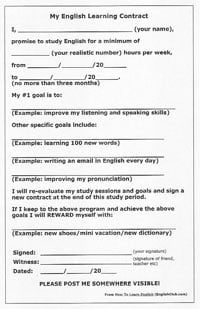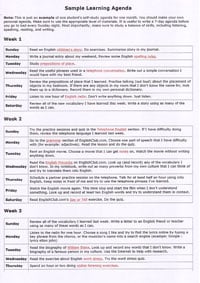TRANSLATION material
ENGLISH TO INDONESIA
Forgiveness
by Phillip Morrison on December 12, 2013
Category: Special Features
I doubt if any of you know Madeline Rackley, but I hope all of us can imagine ourselves in her shoes for a few minutes. We are standing in Judge Jim Coronado’s courtroom in Austin, Texas on November 6, 2013, listening as the terms of our sentence are listed: ten days in jail; ten years probation; loss of a driver’s license for two years; perform 200 hours of community service; have an ignition interlock device installed; not be allowed to drink; and be subject to random alcohol and drug testing.
What on earth did the 27-year-old woman do, kill somebody?
That’s exactly what she admitted, pleading guilty to a second-degree felony charge of aggravated assault with a deadly weapon, reduced from an original charge of intoxication manslaughter, punishable by 20 years in prison. At 1:46 a.m. on July 1, 2012, Rackley drove her Honda Civic off a boat ramp into Lady Bird Lake. She and a front-seat passenger were able to get out of the car, but Jarrett Ryan Whittington, 25, apparently trapped in the back seat, was unable to escape.
Only 10 days in jail for killing a person? Somebody must have gotten to the judge!*
As a matter of fact, two somebodies got to the judge and begged for mercy. Gary and Mary Whittington, though grieving the loss of their only son, welcomed Rackley’s plea agreement because they wanted to forgive her. TheAustin American-Statesman reported that an attorney in the case said, “From the beginning [the Whittingtons] have said they wanted the least amount of punishment that would do the most good.” Another observer noted that a life lost would not be restored by another life destroyed.
News of Nelson Mandela’s death this week has reverberated around the world. In the 1960s, Mandela was convinced that only violence and guerrilla warfare could rid his native South Africa of the scourge of apartheid. In 1964 he was found guilty of sabotage and sentenced to life in prison. Prisoner number 46664 was sent to Robben Island, formerly a colony for lepers, a lunatic asylum, and then a prison where people were sent to be forgotten.
But Mandela, not forgotten, was released on February 11, 1990 after serving 27 years. His followers waited for his rage and a call for retribution, but the call never came. Instead, there came a call for forgiveness. A brutally segregated society that had not even allowed black people to vote soon elected a black man president. It’s hard to imagine a more unlikely journey than from prisoner to president, but Mandela’s journey didn’t end there. John DramaniMahama, President of Ghana, said Mandela became the moral compass of Africa and the world.
Once two friends were walking through the forest. They knew that anything dangerous can happen to them at any time in the forest. So they promised each other that they would remain united in any case of danger.
Suddenly, they saw a large bear approaching them. One of the friends at once climbed a nearby tree. But the other one did not know how to climb. So being led by his common sense, he lay down on the ground breathless, pretending to be a dead man.
The bear came near the man lying on the ground. It smelt in his ears, and slowly left the place. Because the bears do not touch the dead creatures.Now the friend on the tree came down and asked his friend on the ground, “Friend, what did the bear tell you into your ears?” The other friend replied, “The bear advised me not to believe a false friend.”
- The Ant and Grasshoper
The Ants were employing a fine winter’s day in drying grain collected in the summer time. A Grasshopper, perishing with famine, passed by and earnestly begged for a little food. The Ants inquired of him: “Why did you not treasure up food during the summer?” He replied: “I had not leisure; I passed the days in singing.” They then said: “If you were foolish enough to sing all the summer, you must dance supperless to bed in the winter.”
Idleness brings want.
Title: The Ass And His Driver
Author: Aesop (author of Aesop’s Fables) [More Titles by Aesop (author of Aesop’s Fables)]
An Ass, being driven along the high road, suddenly started off, and bolted to the brink of a deep precipice. When he was in the act of throwing himself over, his owner, seizing him by the tail, endeavored to pull him back. The Ass persisting in his effort, the man let him go, and said: “Conquer; but conquer to your cost.”
2)Title: The Ass And His Shadow
Author: Aesop (author of Aesop’s Fables) [More Titles by Aesop (author of Aesop’s Fables)]
A traveler hired an Ass to convey him to a distant place. The day being intensely hot, and the sun shining in its strength, the traveler stopped to rest, and sought shelter from the heat under the Shadow of the Ass. As this afforded only protection for one, and as the traveler and the owner of the Ass both claimed it, a violent dispute arose between them as to which of them had the right to it. The owner maintained that he had let the Ass only, and not his Shadow. The traveler asserted that he had, with the hire of the Ass, hired his Shadow also. The quarrel proceeded from words to blows, and while the men fought the Ass galloped off.
In quarreling about the shadow we often lose the substance.
3) The Ass And The Lap-dog
Author: Aesop (author of Aesop’s Fables) [More Titles by Aesop (author of Aesop’s Fables)]
A man had an Ass and a Maltese Lap-dog, a very great beauty. The Ass was left in a stable, and had plenty of oats and hay to eat, just as any other Ass would. The Lap-dog was a great favorite with his master, and he frisked and jumped about him in a manner pleasant to see. The Ass had much work to do, in grinding the corn-mill, and in carrying wood from the forest or burdens from the farm. He often lamented his own hard fate, and contrasted it with the luxury and idleness of the Lap-dog, till at last one day he broke his halter, and galloped into his master’s house, kicking up his heels without measure, and frisking and fawning as well as he could. He next tried to jump about his master as he had seen the Lap-dog do, but he broke the table and smashed all the dishes upon it to atoms. He then attempted to lick his master, and jumped upon his back. The servants hearing the strange hubbub, and perceiving the danger of their master, quickly relieved him, and drove out the Ass to his stable, with kicks, and clubs, and cuffs. The Ass, beaten nearly to death, thus lamented: “I have brought it all on myself! Why could I not have been contented to labor with my companions, and not try to live by idleness?”
4) the Ass Carrying The Image
Author: Aesop (author of Aesop’s Fables) [More Titles by Aesop (author of Aesop’s Fables)]
An Ass once carried through the streets of the city a famous wooden Image, to be placed in one of its temples. The crowd as he passed along made lowly prostration before the Image. The Ass, thinking that they bowed their heads in token of respect for him, bristled up with pride and gave himself airs, and refused to move another step. The driver, seeing him thus stop, laid his whip lustily about his shoulders and said: “O you perverse dull-head! it is not yet come to this, that men pay worship to an Ass.”
They are not wise who take to themselves the credit due to others.
5) The Ass, The Cock, And The Lion
Author: Aesop (author of Aesop’s Fables) [More Titles by Aesop (author of Aesop’s Fables)]
An Ass and a Cock were together, when a Lion, desperate from hunger, approached. He was about to spring upon the Ass, when the Cock (to the sound of whose voice the Lion, it is said, has a singular aversion) crowed loudly, and the Lion fled away. The Ass, observing his trepidation at the mere crowing of a cock, summoned courage to attack him, and galloped after him for that purpose. He had run no long distance when the Lion, turning about, seized him and tore him to pieces.
False confidence often leads into danger.
6) tItle: The Ass, The Fox, And The Lion
Author: Aesop (author of Aesop’s Fables) [More Titles by Aesop (author of Aesop’s Fables)]
The Ass and the Fox, having entered into a partnership together, went out into the forest to hunt. They had not proceeded far, when they met a Lion. The Fox approached the Lion and promised to contrive for him the capture of the Ass, if he would pledge his word that his own life should be spared. On his assuring him that he would not injure him, the Fox led the Ass to a deep pit, and contrived that he should fall into it. The Lion, seeing that the Ass was secured, immediately clutched the Fox, and then attacked the Ass at his leisure.
7) Traitors must expect treachery.
Title: The Bald Knight
Author: Aesop (author of Aesop’s Fables) [More Titles by Aesop (author of Aesop’s Fables)]
A Bald Knight, who wore a wig, went out to hunt. A sudden puff of wind blew off his hat and wig, at which a loud laugh rang forth from his companions. He joined in the joke by saying: “What marvel that hairs which are not mine should fly from me, when my own have forsaken even the man with whom they were born.”
Those who cannot take care of their own, should not be entrusted with the care of another’s property.
8) The Fox and The Crow
| A Fox once saw a Crow fly off with a piece of cheese in its beak and settle on a branch of a tree.
“That’s for me, as I am a Fox,” said Master Reynard, and he walked up to the foot of the tree. “Good day, Mistress Crow,” he cried. “How well you are looking today: how glossy your feathers; how bright your eye. I feel sure your voice must surpass that of other birds, just as your figure does; let me hear but one song from you that I may greet you as the Queen of Birds.” The Crow lifted up her head and began to caw her best, but the moment she opened her mouth the piece of cheese fell to the ground, only to be snapped up by Master Fox. “That will do,” said he. “That was all I wanted. In exchange for your cheese I will give you a piece of advice for the future: “Do not trust flatterers.” |
Filed under: READING FORTRANSLATION | Leave a comment »



 Sometimes my cat comes to me and tells me that she is hungry. Or that her leg hurts. How does my cat tell me these things? I don’t speak pussy-cat language.
Sometimes my cat comes to me and tells me that she is hungry. Or that her leg hurts. How does my cat tell me these things? I don’t speak pussy-cat language.




Comm